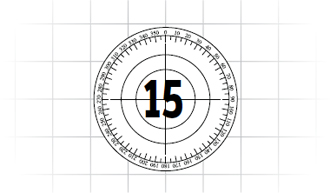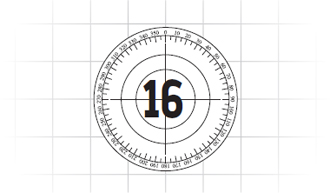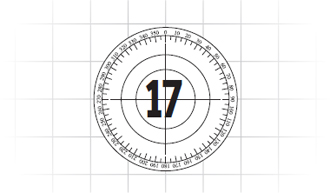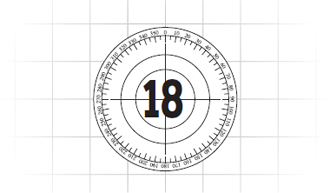Fast Flight (6 page)
Authors: George Ivanoff


I need to throw up.
That was Dillon's first conscious thought.
He tried to vomit. Nothing came out.
His eyes were closed. He had no real idea of where he was or what was happening. All he knew was that his stomach was churning.
He retched and a thin trickle of
foul-tasting bile escaped, dribbling down his cheek. Someone wiped it away.
He felt hands on his shoulders, leaning him to the side, and something cold and metallic pressed to his cheek.
He retched again. A little more liquid came out.
Dillon was aware of movement and voices around him, but he couldn't open his eyes. He was too tired.
His stomach settled a bit and everything went away.
Until he needed to throw up again.
And again.
And again.
Somewhere, amidst all the spewing, he began to get a sense of where he was and what was going on.
I'm in hospital, aren't I?
I had an operation, didn't I?
I've got a new liver ⦠I hope!
He finally opened his eyes. Mum and Dad were there, just like they said they would be. He smiled.
People came and went. Mum and Dad stayed.
He caught a fleeting glimpse of bright green.
Dillon floated in and out of awareness. The only thing he was certain of was that he was thirsty. Scratchy throat, bone-dry mouth, parched thirstiness.
People spoke. He wasn't sure who was talking to whom. To him? To Mum and Dad? To each other?
âWelcome back,' said Mum.
âYou're doing well, champ,' said Dad.
âNausea is quite a common reaction to anaesthetic,' said a nurse.
âIt was a textbook operation,' said Doc J.
âI've got flowers here,' said someone.
âI'll get water,' said someone else. âHe's doing well.'
âNil by mouth for the first twelve hours.'
âIt's already after nine pm.'
âIt will take some time for the anaesthetic to wear off completely.'
âHe'll probably drift in and out of sleep.'
âYou don't have to stay here all night.'
âYou should get some rest, too.'
âWe'd rather wait.'
Dillon heard a mobile ringing. âIs that my phone?' he whispered.
And then he fell asleep.

The following morning, Dillon woke properly. His mouth and throat were so dry all he could manage was a hoarse whisper. He was allowed to have a drink of water, and was told that he could have a snack later in the day.
The nurses soon had him propped up and sitting in bed.
âWow,' said Mum, staring at him, Dad beside her. âI think you're looking better already. Your skin isn't as yellow.' She came right up to the bed and stared at his face. âAnd your eyes ⦠they're white.'
A little while later Doc J stopped in to check on him. Dillon noticed that his bow tie was bright orange today. He looked over the charts at the foot of Dillon's bed, where the nurses recorded their obs. He nodded and made âuh-huh' sounds as he adjusted his glasses. âI am very pleased with your progress. Everything seems to be going well.'
âYou have ⦠interesting ties,' said Dillon.
Doc J smiled. âBow ties are cool!' He hung the chart back in place and pulled up a seat. âRight,' he said, looking from Dillon to his
parents and back again. âI'm sure that you're aware of how things will go from here on in. But I'd feel better if I went over it all with you anyway.'
Dillon nodded.
âThe transplant was successful,' continued Doc J, âand there is certainly no sign of rejection. We will, of course, continue to monitor you for the next few days before you are discharged. After which, you will be able to live a fairly normal life, with a couple of provisos. Firstly, you will need to take a daily anti-rejection medication for the rest of your life. I cannot stress how important this is. It is this drug that will ensure your new liver will stay a healthy part of your existing body. It suppresses your immune system so that it doesn't reject the liver.'
âOkay,' said Dillon.
âBut it also means you need to be extra careful about infections of any sort. The medication will make it difficult for your body to fight them off. The drug also has some side effects. There is the possibility of kidney damage if you don't stay hydrated. So you must drink plenty of fluids every day. You'll also need to stay out of the sun as much as possible.'
âI think all of that will be a lot easier than the daily light box sessions,' said Mum.
âYou bet,' agreed Dillon. âWay better.'
It occurred to Dillon that he would have to do the opposite to his previous routine. He used to try and be out in the sun as much as possible. Now he would have to limit his exposure. It would take some getting used to.
âWell, I think that's pretty much it,' said Doc J. âAlthough I'll endeavour to check in one last time before you're discharged.' He pushed the chair back and shook hands with all three of them in turn.
Dillon noticed his handshake was firm and emphatic. It felt reassuring. It made him feel like everything was going to be great.
âWell,' said Dad, suppressing a laugh, âno more time travel for you.'
âI beg your pardon?' Doc J stopped in the doorway and looked back.
âOh, nothing.' Dad laughed. âIt's just a story I used to tell Dillon, while he was in his light box. A little bit of fantasy can make reality bearable.'
âIt's not entirely fantasy,' said Doc J.
Now it was Dad's turn to look surprised.
âWhat do you mean?' asked Dillon, eagerly.
âYou
can
time travel,' insisted the surgeon. âIn fact, you are doing it right now. All of us are moving forward into the future. Second by second. Minute by minute. Hour by hour. We can only progress in one direction, of course. And it's rather slow-going. But you do get to see a lot along the way. I've always thought of it as rather exciting.'
He smiled gently and left the room.
âInto the future!' declared Dillon.

Dillon was sitting up in bed writing as Mum entered the room. It had been seven days since his operation.
âGood news,' she said. âYou'll be getting discharged tomorrow morning.'
âThat's great,' said Dillon, putting down his pen. âI am so over this whole hospital thing.'
âOh, come on,' said Mum. âIt's hasn't been that bad, has it?'
âYou mean,' grumbled Dillon, âapart from the poking and prodding, and the sounds at night that keep me awake, and terrible food with too many soggy vegetables, and that funny smell everywhere ALL the time. And it's boring!'
âOkay, okay,' conceded Mum. âIt's not wonderful. But you've had books and DVDs, an iPod, an iPad
and
a laptop. What more could you want?'
âFriends,' suggested Dillon.
âYes, all right,' said Mum. âI see your point. But we're going home tomorrow, and I'm sure your friends will come for a visit.'
Dillon grunted.
âAnd hasn't Jay been sending you emails?' asked Mum.
âYeah,' said Dillon glumly, âbut it's not the same as actually having him around.'
âWell, I've got some more news that might cheer you up,' said Mum, looking pleased with herself.
Dillon looked interested.
âYou know how you wanted a mobile phone?'
âYes!' Dillon felt like he was about to jump out of bed with excitement.
âBut there will be rules,' insisted Mum. âI'm not going to have you raking up insane bills. It'll be a pre-paid phone, with twenty dollars of calls per month. You reach the cap and your phone stops working unless you add money to it yourself. Got that?'
âGot it!' Dillon was just happy about finally getting a mobile. He'd work within the limits and then see about getting Mum and Dad to maybe extend them, a little at a time.
âSo, what are you doing?' asked Mum, sitting down on the end of his bed.
âWriting a letter,' said Dillon. âWell ⦠trying to anyway.'
âA letter?' asked Mum. âHow very twentieth century of you. Who to?'
âTo the family of the donor.' Dillon's face was serious.
âBut I thought they couldn't tell you who they are?' said Mum.
âThey haven't,' said Dillon. âAnd the donor's family aren't given any info about who got the liver, either. But the nurse said
I could write a letter anonymously and that it would get passed on to them.'
âOh, I see.' Mum smoothed out the bedsheet, the wrinkles suddenly interesting. âSo ⦠what have you written?'
âNot much,' admitted Dillon. âI can't seem to get past thank you. It doesn't seem enough. But I don't know what else to say.'
Mum nodded. âAnd they probably wouldn't know what to say to you. Maybe that's why the donor program prefers to keep things anonymous?'
âI guess.' Dillon put the paper and pen aside and picked up his iPad. âOf course, I might be able to find out who the donor was.'
Mum looked at him with surprise but didn't say anything.
âYou can find almost anything with Google.' Dillon held up the iPad and waved it about. âEntering the date we got the call, with search terms like “liver”, “transplant” and “organ donor”. Checking online newspapers for accident reports.'
âAre you going to?' asked Mum tentatively.
Dillon shook his head. âI don't think so.' He dropped the iPad onto the bed. âIf I can't think of what to say in a letter, what's the point in tracking them down?' He shrugged. âThey probably don't even want to hear from me. I might be a horrible reminder that the person they loved is gone.'
Mother and son sat in silence for a while. Dillon traced a finger over the iPad screen.
âYou know â¦' His voice trailed away.
âWhat?' asked Mum, encouragingly.
âPart of me hopes that they'll find me,' he said slowly, not looking up. âThat the donor's family will Google the date and
transplant recipient
and ⦠and find me.'
âI think,' said Mum, shifting herself further up the bed so she was beside him, âthat, for now, it's okay if you're just thankful. You have been given a tremendous gift that has come from someone else's tragedy. You don't have to write a letter straight away. Give it some time. After you've adjusted, after you've learned to live a normal life ⦠then maybe the words will come. When you're ready.'
âI guess,' said Dillon.

The following day, Dillon was discharged. Dad had already returned home in order to go back to work. But Mum was still with him.
âAm I glad to be getting out of here,' said Dillon, as they waited at the nurses' station. âHospitals are sooooooo boring.'
âYes, yes,' said Mum. âI know. You've only complained about it a thousand times or so.'
Dillon stuck his tongue out playfully. Mum did the same.
âSorry to interrupt, Mrs Grayson,' said the nurse behind the station. âHere is the discharge paperwork.'
Both Dillon and Mum reddened a bit.
As Mum turned her attention to the nurse, Dillon looked around the nurses' station, with its waiting area, which was like a guard post dividing the patient rooms from the outside world. No one in or out without the appropriate forms.
Yep, I'll be glad to get out of here
, he thought.
Then he noticed that he was being stared at. Over in the corner of the waiting area were a middle-aged man and woman. They were both watching him.
As he turned to their direction, the man immediately looked away. But the woman continued to watch. She even smiled at him. It was a small, sad smile. A smile that could break your heart.
Dillon noticed that the couple looked tired and haggard â as if they hadn't slept or eaten in days. He wondered if their son or daughter was in one of the rooms, recovering from an operation.
He went over to Mum, who was filling in a form on the counter. âHow long is this going to take?'
âBe patient,' snapped Mum. âThey're not going to let you out of here until all this is done. Leave me be and I'll get it finished a lot quicker.'
Dillon huffed and went to sit down. The couple were watching him again. Dillon smiled and waved. The man's eyes welled up with tears and he clutched a hand to his mouth. The woman touched his arm softly, but it seemed to do little good. He got to his feet, shaking his head. âI can't do this,' he croaked, and rushed from the room. Dillon thought the woman was about to do something similar, but she took a deep breath and composed herself.

Dillon couldn't seem to look away, even though he felt awkward about watching. It felt like he was intruding on a very private moment.
Slowly, the woman got to her feet and made to follow the man. But part way to the exit she stopped and turned back.
She looked at Dillon again. He saw a resigned determination wash over her face. It was as if she had just come to a decision â an important, life-changing decision.
And then she was walking towards him.
âHello,' she said in a raspy voice. She cleared her throat and continued. âYou're Dillon, aren't you?'
âYes,' said Dillon, puzzled by how she knew.
âI ⦠I â¦' She hesitated. âI just wanted to meet you. To see ⦠to see what you were like.' She reached out a hand and rested it on his cheek. Dillon could feel the trembling of her fingers. âYou seem like a nice boy.'
She took her hand back and turned to go, then stopped again. She turned back to look at him one last time, with eyes
so sad they could have drowned a city in tears. âI am very glad that your operation was a success.'
Dillon's eyes widened. He suddenly recognised the sadness in the woman's eyes. It was the same sadness he had seen at the funeral when his grandfather had died. It was grief!
As the woman made her way to the door, Dillon knew who she must be. And that she had found him.
âWait!' he called after her.
The nurse glared at him disapprovingly. Mum turned to stare at him questioningly. The woman stopped in the doorway but didn't look back.
Dillon hesitated, his throat tightening, his mind uncertain.
âThank you,' he finally said. âThank you so much.'
The woman nodded and rushed out.
